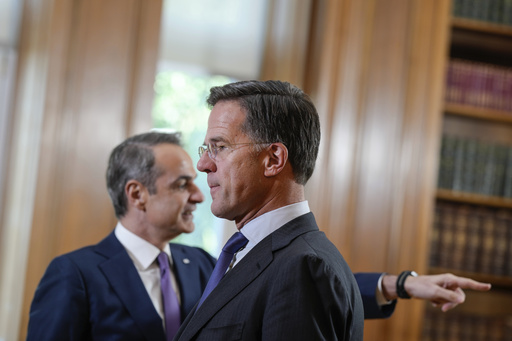
NATO’s new Secretary General, Mark Rutte, emphasized on Tuesday the necessity for the alliance to enhance its support for Ukraine amidst the ongoing conflict with Russia. During his visit to Greece, he criticized Moscow for intensifying the situation by deploying thousands of North Korean troops, asserting that this move poses a significant threat to international peace and security.
Rutte, who recently transitioned from being the Dutch Prime Minister to NATO’s top position, remarked, “In the course of its unlawful warfare in Ukraine, Russia has been utilizing arms and forces from North Korea, along with Iranian drones and Chinese dual-use products to bolster its defense sector.” He characterized this development as a perilous escalation of the conflict.
While in Athens, Rutte engaged with Greek Prime Minister Kyriakos Mitsotakis, expressing gratitude for Greece’s contributions to Ukraine, which include military supplies, ammunition, and training for F-16 pilots and technical personnel. He noted that while these efforts have been instrumental in sustaining Ukraine’s resistance, further actions are essential to alter the conflict’s current trajectory.
Greece allocates over 3% of its GDP to defense, exceeding NATO’s minimum requirement of 2%. The country is advocating for amendments in European Union budget guidelines to facilitate increased military expenditures. Additionally, it is working toward establishing a unified European air defense system.
Mitsotakis highlighted the shared commitment to enhance collective defense among all allies, which necessitates a robust defense industry that attracts substantial investments. He also mentioned Greece’s support for a more effective collaboration between NATO and the European Union to fortify the European aspect of the alliance.
As European NATO members continue to deliberate on strategies to elevate defense investments in light of the persistent conflict in Ukraine, the uncertainty concerning the upcoming U.S. administration following the election of President-elect Donald Trump adds another layer of complexity.
Rutte’s visit to Athens came after interactions with Trump in Florida and discussions with Turkish officials in Ankara the previous day. He also conferred with Greece’s Foreign Affairs Minister George Gerapetritis and Defense Minister Nikos Dendias.
Meanwhile, several thousand demonstrators gathered in central Athens to voice their dissent regarding Rutte’s visit. The largest protest, organized by a trade union aligned with Communist ideals, featured slogans demanding, “Allocate resources for healthcare and education, not for NATO aggressors.”
